0
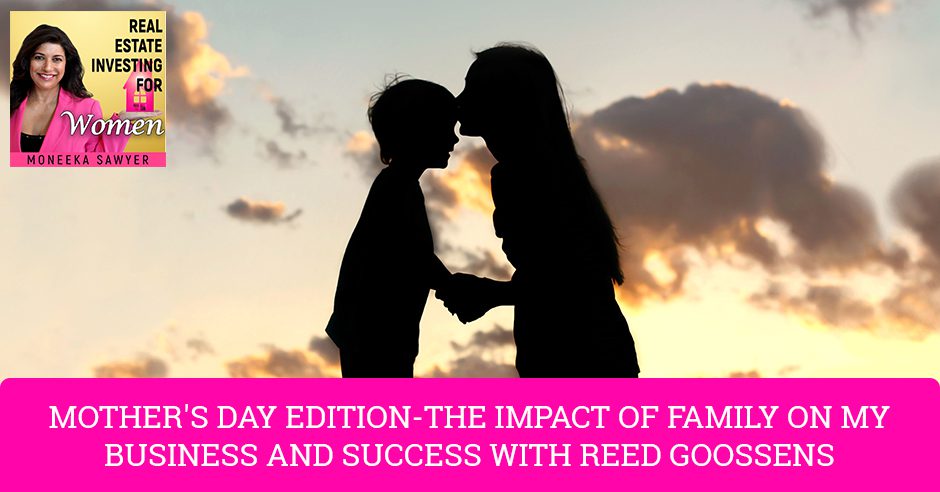
Many see investing as a male dominating world but for Moneeka Sawyer, a real estate investor and author of Choose Bliss: The Power and Practice of Joy and Contentment, it is an industry where real estate women like her can be influential as well. She joins Reed Goossens as she shares how her experience recovering from an accident and her family have a great impact on her business’ success throughout the years. Moneeka also wants to use this opportunity to empower women in the industry and show the world what they got.
—
Listen to the podcast here
Mother’s Day Edition – The Impact Of Family On My Business And Success With Reed Goossens – Real Estate Women
Real Estate Investing For Women
Ladies, I hope you had an amazing Mother’s Day weekend. I was trying to think of what I could do to honor Mother’s Day because I feel like it’s a very special holiday. I always want to honor our moms who supported us to become the women that we are now. I was on Reed Goossens‘ show and he did the most amazing interview, where he brought out so much about my family that hasn’t been shared. Since I think of moms as the core of the family, I thought of featuring a show about family, what it means to me and how it has impacted my life. Hopefully, it’s inspirational and helpful to you also. Enjoy the show.
—
I have the pleasure of speaking with Moneeka Sawyer. She is a lifestyle-focused real estate investor with an emphasis on helping more women succeed in the real estate industry. Moneeka has been investing for many years and she has truly created a life-by-design business, where she only spends between 5 to 10 hours a week working on her business and helping inspire other people to be more successful in real estate. She’s also the bestselling author of the book, Choose Bliss: The Power and Practice of Joy and Contentment, which was honored at the very prestigious Women of Impact Quill Award. I’m pumped and excited to have her on the show to share her incredible experience and her insight and knowledge. Moneeka, welcome to the show. How are you doing?
I’m doing great. Thank you so much for having me, Reed. I have to say one correction that’s worth mentioning. It’s 5 to 10 hours a month.
I must have skim-read that part.
That’s what people assume and that’s why I like to point it out. It’s amazing what’s possible. We can do 5 to 10 hours a week. We could also do 5 to 10 hours a month. It’s what’s good for you.
Tell us about more of your upbringing and how you value a dollar through your childhood. That’s an important step to start with to craft the story around what you created.
My story begins with my parents. My parents were immigrants. They came to the country with $200 in their pocket and a dream of building a life that was amazing for their children. They had heard that the golden ticket to wealth in the United States was to invest in real estate. When they got here, they immediately started saving their nickels and dimes. My mom is an MD, but she couldn’t work as a doctor here. She would sew the curtains for her house or the pillows for her sofa so she could save all those nickels and dimes but still have this beautiful home that she would expect for herself as a doctor, and then I was born. Their hearts were filled with love, joy and excitement for this new child. They’ve invested in their very first real estate investment project. It was land. They stayed focused on that their whole life and fast forward many years, they paid for my college education through real estate.
I grew up watching that whole thing. It was a topic of conversation. This is an interesting thing that happens in Indian families. Not all Indian families, but many. We do have a very open conversation about money. I got to hear about the stresses that my parents were going through, whether my mom needed to go through residency again to be able to practice here or my dad being discriminated against at work. They came here in 1967 and we lived in Ohio. It was a very white community. People were still very kind and they still had great jobs, but there were also people who were not kind who discriminated against them. I heard all of this stuff.
Bliss is a deep sense of joy, contentment, and that confidence that no matter what happens in life, you can handle it. Click To Tweet
One of the things that impressed upon me was that it was important to me to be able to make money myself and not be dependent on anybody else, which is an interesting dichotomy because Indian women wanted me to have an arranged marriage. A man was supposed to be able to take care of me, but then on the other side, I needed to be fully independent. Talk about mixed messages. What was interesting is my mom and dad would not let me work. I was a girl. I needed to study. I needed to go to college. I needed to get married, but I also needed to be a professional so I could support my husband to make a lot of money.
As I was growing up, I wasn’t allowed to work. I wanted to. I would read Entrepreneur Magazine. I don’t know if anybody remembers the old Entrepreneur Magazine where they had all these binders of businesses that you could start. You can pay $99 and you would get this business startup pack for anything, a wedding planner or a banker. There are all these things. I would buy them. I was so hungry, but I wasn’t allowed to work. I wasn’t allowed to go out there. My very first job was at Jack in the Box when I was seventeen and I bagged. I felt like I was dating because that was another thing I was not allowed to do. I was going to have an arranged marriage. I would sneak out so I could go work. It was so naughty. I had developed an appreciation for money. Dad had started to talk to me about real estate when I was very young. I got my very first allowance, which was very little. Even in those days, he taught me about budgeting. I opened a checking account and started writing checks. I was very fortunate that way. He taught me a lot about the practicality of money and the role that it plays in our life.
Thank you for being vulnerable and honest. That’s probably the most intriguing dollar story I’ve heard. I get so many people on the show like, “I have mowed lawns.” I was like, “Don’t say mowed lawns. Say something better.” You’ve had the opposite of having to try and fit in as a kid and probably see your other friends out working at McDonald’s or wherever it is. They had money to buy dresses and go out on the weekends and be teenagers. You had the other traditional side of your upbringing and your heritage, which is important. Not to pull you that, but it’s what your values that your parents wanted to instill in you. It’s very humorous that your parents were like, “You got to make money and land on your own two feet, but you can’t. We want to give you an arranged marriage.” What were the conversations around the dinner table when you wanted to break away from being that first-generation American and break away from the norms that probably your parents were brought up with back in India?
It was hard. I’ll preface this by saying, I am absolutely crazy about my parents. They’re the two most beautiful people on the planet. I am so fortunate to have had them guiding me through my journey in life, but growing up was hard. It was hard in our environment because I’m not white and we grew up in very white areas because of my parents’ jobs. Out in the world, it was tough for me. At home, that was my sanctuary and my parents were so scared. They used to watch General Hospital. They saw all the drama on television. Because they hadn’t grown up in this country, they were scared that horrible things were going to happen to their girls.

Choose Bliss: The Power and Practice of Joy and Contentment
They held on so tight and were so protective. Very young, I became very secretive. I would have to sneak out to go do my job. I sneaked out for everything. I didn’t talk to them about anything because I was afraid that they would be so afraid, then they would hold me up in the tower of safety in our home and I couldn’t do anything. I couldn’t go out with friends. I couldn’t work. I was in all honors classes and my honors classes started at 7:00 in the morning. My mom and dad were afraid to let me go to honors classes because “Who goes to school at 7:00 in the morning?” I did. I wanted to get into a good university. You can see this misunderstanding of what life is like.
Indians do this too and a lot of cultures do this, yelling and screaming on top of our lungs, “I love you, but you are so wrong.” I don’t think it was dysfunctional. It was truly authentic and honest because we got to the bottom of stuff and there was never a dearth of love for us. No matter how angry we got, we were a unit and we loved each other like crazy. We always had that as children growing up. Even now, I never felt that there is a moment that there is no unconditional love in my life and that’s because of them.
I will also reflect back to you that I came from a very similar family, not necessarily traditional. We live in Australia. It was Aussies being Aussies. It’s that whole unconditional love and bringing in. I even remember bringing my wife and she came from a broken family, and how intense it can be sometimes. She felt outside like, “I didn’t have this growing up. You’re very lucky, not many people have this.” I was very similar to you that there was that unconditional love. Everything that they thought came from a position of love and they said, “I want to protect the girls and they can’t do this, that or the other,” but it probably made you very cheeky in terms of going out and escaping, and having to do things on your own ways to feel like you had a life.
I’m very independent, but it was also interesting. I went to UC Berkeley and I had a lot of my other Indian girlfriends who had had a similar experience. They went to UC Berkeley and we were all like, “We get to hang out at school.” What was funny was that I went out there and I was like, “I’m here to learn. I wanted to start a business my entire life. I’m going to go to business school.” For UC Berkeley, you have to re-apply for business school. I was like, head down, “I’m going to make this happen. My life is my life. I’m in control. I don’t have to sneak around to work or study.” I was so excited. All my friends got into drugs and alcohol and not in a bad way. They were all still smart. It’s just college kids being college kids, but they were all into the party. All my old childhood friendships fell apart because my version of freedom was creating the life of my dreams and their version of freedom was trying everything possible under the sun. It’s a very different perspective. I’m tenacious. I can be crazy, but it was all very focused on, “There is a life that I want and I’m going to go get it.”
Many people do it and myself included. When that freedom does come when you go to university, you do tend to rip the lid off. That’s not necessarily a bad thing because you then test your boundaries and you test where you need to pull your socks up, “You have stuff up. You’ve partied too hard over here. Now, you need to pull your socks up because you’re grades are failing.” I can sympathize with your friends but also with you in terms of having that freedom and understanding, “There’s so much more control of my life.” Even when I went to high school with the deputy principal’s son, I was very goody two shoes and not doing anything when I was a teenager.
When going to university, I started like, “Girls and alcohol. Holy crap,” but then realizing like I’m still very studious and my grades were suffering. You had to make that choice in life. That’s interesting when you were at university back to the story of the girlfriends from Ohio, going to UC Berkeley and then having different perspectives. You do eventually drifted away because of different priorities in life. That’s okay. That’s the point of going to university. The point of figuring yourself out is for all these things to happen. I love that story.
It’s funny because sometimes I think I robbed myself of all that fun. I was so focused on what I wanted and I didn’t slow down and notice that there was fun out there. I could go party. I could have it all. It didn’t have to be mutually exclusive. As I’ve gotten older, I’ve relaxed quite a lot. I’m not quite that focusing crazy.
Don’t wish away those moments that you’re going to miss so much when they’re gone. Don’t wish away your life. Enjoy every single moment. Click To Tweet
It’s a good segue into the bliss. What is bliss? Part of what I’m hearing from you at a young age is what you thought you had to do in order to be successful. A lot of entrepreneurs that I interview on the show do get the blinkers on and are just crazy. They take certain priorities that are business over health, life or love, and things start to whine. They realize that they don’t have a life. The purpose of all that we do, whether it be at university or in creating something from nothing in businesses. It is to enjoy the journey because it’s not ultimately the mountain top we scale, but it’s you only live one life. Enjoy it now. We have this social media anxiety. We always got to be comparing ourselves and “I always got to have something more to do.” It’s such an interesting bliss that I want to talk about with you because I know you’ve got a lot to give on that piece.
We only get to the mountain top for a little while and then we look around and we got to go back down. If you don’t enjoy the journey, then all you get is that ten minutes on the mountain and then you’re climbing another mountain. Bliss is a deep sense of joy, contentment, and that confidence that no matter what happens in life, you can handle it. It’s about emotional mastery and emotional resilience. That’s how I’m defining bliss. My journey or my passion is to help real estate investors, women, business owners, people in general, to let you enjoy that journey. Let me tell you a story. Your story is perfect, but I’m going to tell you another one.
I was in Iceland and we wanted to go see a glacier. It was a two-and-a-half-hour drive. We decided to do it. We were driving along and there are two ways that we can approach this. We can drive as fast as possible and make the two-and-a-half-hour drive two hours, or we can drive below the speed limit. We’re on vacation. Everybody is like, “Really?” We’re driving and looking around and enjoying the scenery, the terrain and the way that it changes. Here, it’s plants and waterfalls. Here, it’s lava. We’re getting out, taking pictures and stopping for lunch. The experience of going to that glacier was completely different by doing it that way. We had this beautiful journey that ended up taking us three hours. We got to the glacier. We hung out there for two hours. It was gorgeous and worth the journey. We drove back and enjoyed the drive back too. We went to dinner. Our next goal was to find a hotel and go to dinner.
That’s a good metaphor for life. Are you looking around? Are you having good meals? Is it okay that you take longer so that you can enjoy that journey? When you get to that goal, as fantastic as it is, being at that goal only lasts for a little while and then there’s another journey to another goal. Do you want to live your life jumping to ten minutes of bliss or do you want to enjoy the entire journey so you can enjoy all of it? That’s what I want people to get is whether it’s in real estate, whether it’s with your families, people are like, “I can’t wait until my kids go to kindergarten.” Don’t wish away those moments that you’re going to miss so much when they’re gone. Don’t wish away your life. Enjoy every single moment of it.
Have there been any losses in your life to understand that mindset shift? You do slow down because you clearly are the person who is hungry, who wants to hustle, who wants to prove to their parents that they can go up, do it and stand on their own two feet. Has anything happened in your life? You can say no, getting older and all that stuff. I know personally, I lost my mom. I’ve got a story for you that I wish I was at the life I live now before so I can spend more time with her. I live in America. She’s in Australia and I got home three days before she passed. I did a whole episode on priorities versus goals and how that we can sometimes shift them. Was there anything that shifted along your journey in the way that made you realize, “This is not a sprint. Let’s take the long journey. Let’s do lunch. Let’s enjoy the scenic route?”

Real Estate Women: Find ways to make the hustle livable so that you don’t burn out. You don’t want to get to the other side and be completely burnt out.
I have been very fortunate I have not experienced loss yet. We all do and I know that it’s coming. As I mentioned before, I’m madly in love with my parents. I want lots of time with them and with my sisters and nephew. We’re very family-oriented. That’s been ingrained in me, but the hustle didn’t stop. It transformed. When I was in a horrible car accident, I lost my legs. I was a professional dancer. That was the one thing I was allowed to do. Since I was five years old, I was dancing. I had a world reputation. I danced all over the world. When I was 21, I was in a horrible car accident that was not my fault. Someone hit me and my hips got dislocated, my back got thrown out and I became a cripple for a couple of years. I should have been into a chair but that’s another story.
I went through a huge depression during that time because everything about my life suddenly shifted. I just had gotten out of college. My new job disappeared. My fiancé left me because I wasn’t the same person anymore. I was a dancer dancing six hours a day. Now, I had no exercise. The chemistry in your body changes so fast. I gained so much weight, which aggravated a lot of the problems. I went through this horrible time. Fortunately, somehow I ended up getting married. My husband is a dream guy, but even marriage didn’t fix it, even having the money and taking care of. This is one of the things that we do as people. When things go wrong, we think, “If I have the love of my life, everything will be better. They’ll take care of it. They’ll save me,” whether it’s a man or a woman. I had that mentality from my upbringing. I got married to this beautiful man, but he didn’t fix it. He couldn’t. Nobody can fix your life. Only you can fix your life.
I remember I had a moment when I had gone through a huge depression. The pain wasn’t going away physically. My legs still weren’t working quite right. It had been 5 or 6 years. My marriage wasn’t fixing all the problems. I remember one day, I was lying in bed. I had been in bed for a week. I had been depressed. I had been sleeping. I heard my mom’s voice in my head. She said, “Moneeka, get out of bed and go get some air. You’ll feel better.” I had the covers over my head. I pushed them off of my head and swung my legs around to get out of bed to go for a walk. As I tried to stand on my legs, I fell to the ground because they were so weak, they couldn’t hold me. At that moment, I thought, “I can’t do this anymore.” I prayed and said to God, “Either have mercy on me and bring me home or teach me how to live.”
A girlfriend called about an hour later, who I hadn’t heard from for years. She turned me on to a coach and this coach taught me how to live. The very first thing that he talked to me about and I do this in all of my coursework is, “What are your values? Design your life not based on anybody’s expectations, not even your own because your own have often been given to you, but create a life based on those values and what’s important to you.” What was important to me was my relationships. No matter how much I wanted to hustle, how important a business was to me, my highest value was my relationships. That was what slowed me down and made me realize, “I can’t spend 80 hours a week. I have the capacity, but I can’t do it because my life feels bad.”
What do you say to those people who are in the hustle right now? They are trying to make ends meet. They are putting one foot in front of the other. They are in the grind right now. For you and I, we’ve both been in that grind. We’ve both been in that 80, 90, 100 hours a week. For me, personally, working a W2 job, trying to get out and become financially free in these situations, and all sort of stuff. What do you say to those people who are in that right now? How do you give confidence that it’s going to be okay?
The very first thing that I will talk to them about is, “What are their values? Why are they doing that hustle? What are the values that you’re trying to satisfy? What’s the goal that you’re trying to get to?” Find ways to make that hustle livable because, for some of us, it’s necessary. It was necessary for me. It was necessary for you. Find ways to make that livable so that you don’t burn out. You don’t want to get to the other side either and be completely burnt out. Set milestones for yourself. You’re hustling. You’re working an 80-hour week. When does that stop for you? Is it a year? When are you going to re-evaluate? The other thing is you may be hustling. You may not be hustling towards your goal. Things may not be working.
For me, if you’re in the hustle and you’re working that hard, every six months, re-evaluate, “Is this hustle going to get me where I want to go?” That way, you can pivot or refocus if you need to. Keep going. You want to keep re-evaluating and then get to that place where it doesn’t become a habit because hustling is adrenaline-filled. It can be exciting on many levels. It can become a habit and a distraction to what you want in your life. Those are the sorts of things I would tell them.
It’s so important to keep a level mindset in terms of running your own race because so many people compare themselves to other people. Back to your analogy of going up in Iceland, going up to that glacier, taking the long journey and it’s your journey. That’s okay that it’s your journey. It comes a lot from being self-aware. You have to take care of yourself mentally to allow yourself the mental freedom to not compare yourself constantly to other people because that is what we were. We’re always in this constant struggle of like, “So-and-so is doing this and I’m in my job. I haven’t broken free. I haven’t got financially free.”
No one else can fix your life. Only you can. Click To Tweet
It’s okay that you’re in that position. Give yourself some permission to allow yourself to be okay in that situation. It will change and know it will change over time. I think people forget that because they’re only looking at the 4×4 inches box. They’re not looking at the big picture. Sometimes you do have to take that time to make sure that you’re checking in, recalibrating if need be, and understanding that this needs to be sustainable growth in a hustle, not necessarily a burning out type of growth.
My youngest sister had a little boy. He’s the dream of everybody in the family. He’s adorable. His mom said something about his eye was a little bit off. They got it fixed or whatever. My other sister said, “Everybody should realize that he’s perfect the way he is as long as we don’t compare to other people.” It’s true. That was so profound. We’re all in our perfect place and we are perfect as long as we don’t succumb to comparing ourselves to others. Our life is ours. You may not feel like everything is going perfect, but trust that you are perfectly where you are and that you will get to where you want to go. It doesn’t matter what anybody else is doing.
I’m going to stuff up the quote, but I don’t know who the author was. It talks about LA is three hours behind New York, yet it’s three hours in front of Hawaii. It’s not that Hawaii is late or LA or New York is early. It’s their own time. You’re not late. You’re not early. You’re just on time because you’re running your own race. It compares the time in the world and it’s so true. You’re not late. You’re not early. You’re on time and it’s your time. It’s your journey and that’s okay. Tell me more about what you do in terms of how you’re giving back to the wider community. I bet you’ve got a great book that has got an incredible award. You’ve got your show going on and you’ve also got your real estate investment business. Talk about those three facets of what makes you tick now in the world.
I have a real estate show called Real Estate Investing for Women, where we focus on mindset, heartset, emotional mastery, money smarts and real estate strategy. It’s a very holistic approach to creating a blissful real estate business and creating wealth that way. That’s my big focus. I invest in executive properties. If anybody ever wanted to know what that is, come listen to my show. I have very streamlined strategies on how to keep everything blissful. I have that going on. One of the big bliss things for me is I give back to the community in teaching right through my show. I also am very involved in a school for the poor in India. That’s where a lot of my money goes. This is one of the things that we think about like, “Why are we building wealth? What does it allow us to do?” For me, it gives me the time freedom and financial freedom to do things in the bigger world. I can run my show. I can help children in India. I can spend more time with my family and my nephew or my friends. Those are the sorts of things that I’m doing.
My real estate investing business could retire me now. I have the time freedom that I have always wanted. The show is my big thing. I do have a couple of other books. If you look up Moneeka Sawyer on Amazon, you’ll find several books under my name. I released another one called Real Estate Investing for Women and I have a fun one that’s called Your Amazing Itty Bitty Blissful Real Estate Investing Book. It’s 40 pages. That’s also available on Amazon. Those were my three big things. I built my real estate business in about 25 years. I put together a report of how did I do that so that I could retire. I started with $10,000 and now I can retire. I’ve put together that report. That’s available to your audience for free if they would like it at BlissfulInvestor.com.
You’ve got a whole brand in and around educating women. Why is there a lack of women in the real estate space? I was even looking back at my shows. I’ve only had maybe less than a dozen women over 220 episodes.
It’s interesting because real estate agents, there are a ton of women, but as far as being investors, I don’t know. Maybe we haven’t been educated right. I’m not sure what’s going on there. It’s so frustrating to me, which is why I am focused on women. The other thing that’s very interesting is that we see investing as a male world and it can be intimidating. What women don’t realize is that we are brought up in America. We are brought up in a male-dominant world. We are forced to learn how to succeed in that environment. We learn the skills. We learn the way to think. We learn all of those male-dominant ways of doing business.
We also inherently by default have the feminine ways of doing business. We’re intuitive. We can see the bigger picture. We can multitask. Men can multitask too. It’s just done differently. I just want to clarify that. We bring different skills to the world and the business world. As women, we have the benefit of having male skills as well as female skills, but we don’t value our female skills. If you marry those two together, we are amazing investors. We have an understanding that most men don’t have access to unless they plug into the other side. We’re amazing investors and I want to support that.
I have a hard time finding women speakers for my show for that same reason. It’s time for us to step into the leadership of our own lives and create the financial freedom that we can have and deserve. Everybody deserves that. I don’t know either because I was brought up in a household where I was taught all about money. I feel very fortunate. I didn’t realize how many women are like, “I don’t get it. I don’t know how to pursue that.” A lot of education is by men with the language that feels uncomfortable.
I think of this historically where the man is going out to be the breadwinner and the female is at home taking care of the kids and, “Don’t you worry yourself with the finances. I’ve got it sorted.” That’s completely shifting and hopefully, it continues to shift. You’re trying to put a megaphone up to the issue and enticing more people into the world of real estate, particularly female, a popular part of the population. It’s important because it’s empowering. The more people can be empowered to learn about something, particularly the female part of the population has not had the opportunities because of the way we’ve been brought up for many years. To want to take that stand and say, “I want to learn about something. I want to learn about this financial freedom. I want to learn about creating financial wealth for myself and my family because that’s the whole point, to give me time freedom to spend with my kids, to spend with my family, to grow as a human being.” You talked about feminine energy and that is important. We all have it in ourselves. It’s just an ability to tap into it in certain ways. You’re doing an incredible job of giving a megaphone.
The school that I support in India is a coed school. Because here’s the thing with empowering women. If a woman is fighting and screaming, “Pay attention. Respect me,” people are going to hear, but people don’t learn by words. We need the support of our entire community and that means our men. If men are not going to support the empowerment of women, it’s going to be a huge, long journey. As the men come on board, now we all are lifted up together. Every single one of you who is willing to be a voice as an ally of women’s empowerment, we need you and appreciate you. Your voice is important too.

Real Estate Women: We’re all in our perfect place and we are perfect as long as we don’t succumb to comparing ourselves to others. Our life is ours.
There are some weird statistics out there in the S&P 500. There are only less than fifteen women who are CEOs, yet more than 25 of those CEOs are called David. It takes all boats to rise. Everyone needs to be pulling in the right direction, not just the female community saying, “We want to do this.” It’s about also the other side of the coin, the male community saying yes and acknowledging and telling that community, “We’re seeing and hearing you. You have a place at the table and you should always have a place at the table.”
We all value that. Men are greatly improved and evolved by recognizing that also. Like I said, my husband is an incredible, beautiful human being and so much of that is he values me. He’s not just an incredible, beautiful human being to me, he’s also respected everywhere because he has a good understanding of what respect looks like for everybody.
I have one question before we dive into the top five investing tips. What are your plans for 2020 and beyond, both business and personally?
I’ve got a summit coming up, my very first summit. It’s online virtually. I was originally going to have it live in person and then I felt very limited by that. I want to be able to reach as many people as possible so making it virtual allowed me to do that. I’ve got that going on. I’m probably going to release a book because that’s what I do. I love being an author. Look me up as Moneeka Sawyer on Amazon to see what happens there. Everything in life is a surprise. I love the new surprises that I’m inspired to do. Honestly, I want to invest in one more property. My goal is to be able to retire in Silicon Valley. Right now, I could retire. I would have to move. I want to be able to retire here so my husband can continue to be supported in working because he loves being a software programmer and this is where the work is. I’m going to be buying a couple of more properties, probably changing my strategy from an equity strategy to a cashflow strategy. Those are some of the things that I’m learning about, growing in and excited about.
At the end of every show, we like to dive into the top five investing tips. What is the daily habit that you practice to keep you on track towards your goals?
I have a good morning routine and anytime I miss it, I feel out of sorts. It’s super simple. I can go through it in a couple of minutes. I wake up and my alarm goes off and I push snooze. Everybody says, “Don’t push snooze.” I always push snooze and that time between my two snoozes is when I do my gratitude practice. I have a very specific way that I do that. Anyways, I do my gratitude practice, get out of bed, get dressed and feed the dog. My husband and I go for a beautiful walk together with the dog and have some coffee together. We make some eye contact before we split between for our days. I come home and I do some mindset tools. It depends on what I’m into. On that day, maybe I read, watch a video on YouTube or recite something. I do some positive affirmation and then I sit down at my desk at 10:00. I get my exercise, meditation, affirmations and gratitude. I get it all.
It’s so important to keep that morning ritual sacred for yourself because it helps you start the day and get involved into the next 8, 9 or 10 hours, however long you work for. Who is the most influential person in your career to date?
It’s my dad.
In your business, there would have to be an influential tool. When I say tool, it could be software or it could be a physical tool like a phone or a person. What is the most influential tool in your business on a day-to-day basis?
Books.
Books you’re reading or you’re writing?

Real Estate Women: You may not feel like everything is going perfect, but trust that you are perfectly where you are and that you will get to where you want to go.
I would say I’m reading. I’m always reading something. That’s not necessarily part of my morning routine, but at lunchtime, I can’t help it. I love to read. At some point during the day, I will read something that moves me forward to what it is that I’m doing tomorrow and what I’m doing in my business. I would say my Kindle, specifically.
In one sentence, what has been the biggest failure in your career to date and what did you learn from that failure?
I bought this place that I live in, my dream home. I bought it in 2008 and within six months, it lost 50% of its value. I lost $500,000 in six months. What I learned is it’s so important to stay blissful because my whole life would have blown up. If I didn’t have the skills that I had, I would never be where I am now, but instead, I engaged my bliss strategies, held onto the property and kept my head. It turned around and turned into a good thing. The truth is stay blissful, manage your emotions, be resilient and have mastery. Be very intentional about how you’re living you’re life. When things go wrong, be intentional about how you solve those issues.
Moneeka, where can people reach you to continue the conversation if they want to be in your sphere and want to learn more about what you do?
Moneeka Sawyer is where you find me everywhere, @MoneekaSawyer on Facebook and Instagram. You can go to BlissfulInvestor.com to find out about my books, my programs and my podcast is called Real Estate Investing for Women. You can find that anywhere podcasts are.
I want to thank you for jumping on the show. I want to reflect on the things that I took away from the show. I think the number one thing that I took away from the show is that no one can fix your life, only you can. That’s so important in this world of, we want to blame other people for the situation we’re in and not taking control and not owning up to your shit and turning it around. Blaming your parents, your upbringing, your husband or the dog. We all get into that mindset, but it’s also making sure that you’re self-aware enough to take yourself out of it. Have your morning rituals that are going to keep you grounded and make sure you are in a blissful state to not be so reactive in the situation, and understand more what the long-term game is. Did I leave anything out?
No, that was beautiful. Thank you for that summary.
Thank you so much for jumping on the show. Enjoy the rest of your week and we’ll catch up very soon.
Thank you.
—
There you have it. It’s another cracking episode and jam-packed with some incredible advice from Moneeka Sawyer. Please make sure you check out all her stuff. She’s all over Facebook. She’s all over Instagram. She’s all over the Google webs in terms of making all her books on Amazon. Make sure you head over to BlissfulInvestor.com or check out her show, Real Estate Investing for Women on any way you podcast. I want to thank you all for taking some time out of your day to tune in to continue to grow your financial IQ because that’s what we’re all about here on this show. We’ll do it all again next episode. Be bold, be brave and remember, go give life a crack.
Important Links
Love the show? Subscribe, rate, review, and share!
Join the Real Estate Investing for Women Community today:
______________________________________
To listen to the EXTRA portion of this show go to RealEstateInvestingForWomenExtra.com
To see this program in video:
Search on Roku for Real Estate Investing 4 Women or go to this link: https://blissfulinvestor.com/biroku
On YouTube go to Real Estate Investing for Women

Moneeka Sawyer is often described as one of the most blissful people you will ever meet. She has been investing in Real Estate for over 20 years, so has been through all the different cycles of the market. Still, she has turned $10,000 into over $5,000,000, working only 5-10 hours per MONTH with very little stress.
While building her multi-million dollar business, she has traveled to over 55 countries, dances every single day, supports causes that are important to her, and spends lots of time with her husband of over 20 years.
She is the international best-selling author of the multiple award-winning books “Choose Bliss: The Power and Practice of Joy and Contentment” and “Real Estate Investing for Women: Expert Conversations to Increase Wealth and Happiness the Blissful Way.”
Moneeka has been featured on stages including Carnegie Hall and Nasdaq, radio, podcasts such as Achieve Your Goals with Hal Elrod, and TV stations including ABC, CBS, FOX, and the CW, impacting over 150 million people.

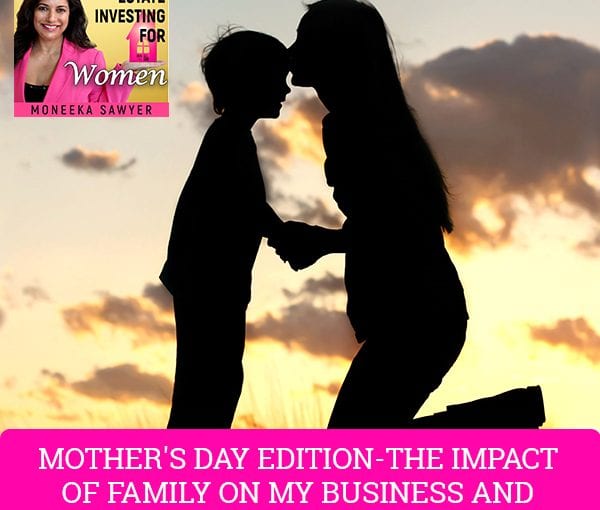





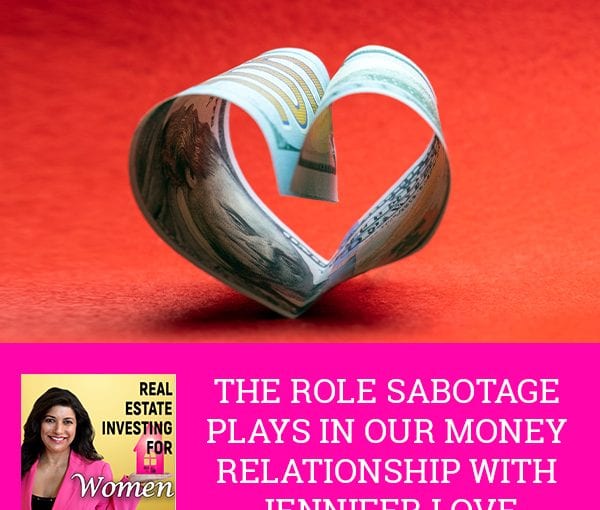




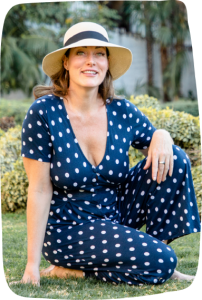
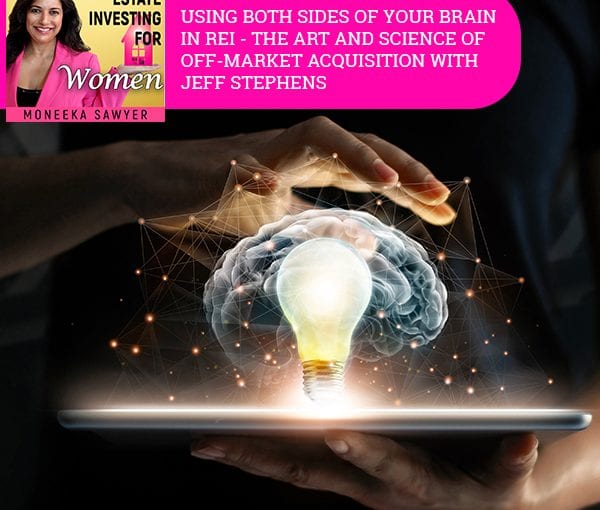



 Jeff loves delivering presentations to great organizations! In his
Jeff loves delivering presentations to great organizations! In his